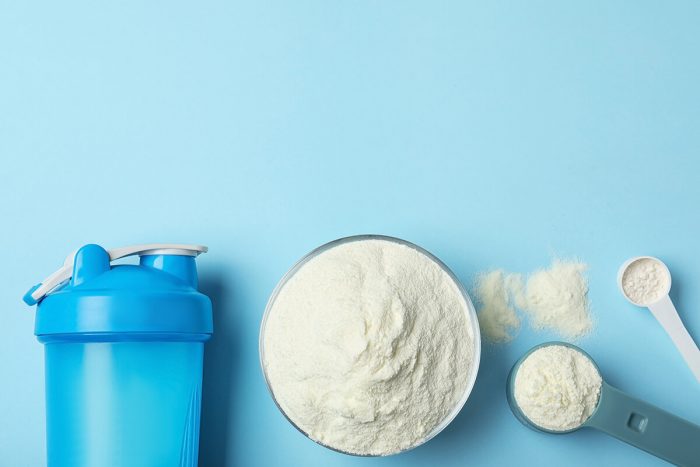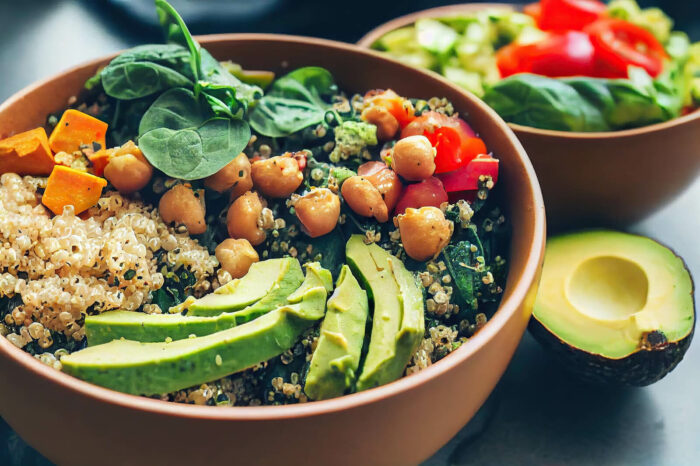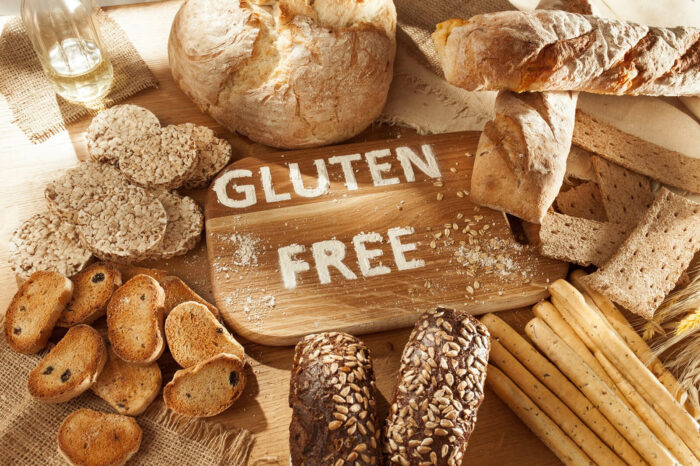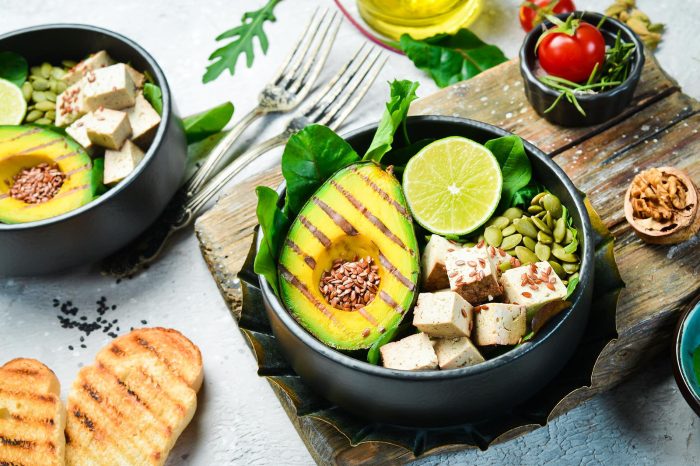Does Vegan Protein Cause Acne?

The Fact About Whether Protein Causes Acne
Protein powder is an incredibly convenient way to supplement the amount of protein intake in your diet. It can be added to smoothies, yogurt, or shakes, giving you flexibility when consuming extra protein. Protein powder can also come in a variety of flavors, making it an appealing option for people who struggle to get enough protein from their daily meals. Rich in essential amino acids, protein powder can offer quick and efficient benefits with just one scoop of a day. Best of all, by taking advantage of the different types and brands on the market, you can easily find one that satisfies your needs. But an important question is, does vegan protein cause acne? The answer is no, vegan protein does not cause acne. In this article, we’ll cover why plant-based protein does not cause acne.
Does Whey Protein Powder Cause Acne?
Some are wondering if vegan protein powder can be linked to acne breakouts. The answer is no. It is highly unlikely that vegan protein powder causes acne. Both whey protein and vegan protein have their own unique set of vitamins and minerals, but studies have found that many people find vegan proteins to be easier on the digestive system. Digestion issues such as indigestion and bloating are often reduced when switching to a vegan protein source.

Can Whey Protein Powder Cause Acne?
Since we just answered, “does whey protein powder cause acne”, we’re going to talk about if it can or not. Vegan protein powder does have the potential to but most likely won’t. It depends on a few factors – ingredients, brand, quality of the product, and allergies to any of the ingredients. There is no definitive research that concludes that using vegan protein powder can cause acne, but it is important to note that certain ingredients used in different vegan protein powder brands may cause skin irritation and potentially worsen existing skin conditions like acne.
What to Look For in a Vegan Protein Powder
There are several factors to consider when looking for the best vegan protein powder. It’s important to check the label for all-natural ingredients that provide a balanced source of protein such as hemp, chia, sacha inchi and quinoa. You can also choose between pea protein vs. soy protein. You’ll also want to make sure the powder you choose has a balance of essential amino acids including lysine and BCAAs. Look for added nutrients like vitamins and minerals which can improve absorption and metabolism. And of course, read the reviews from other people. Here are some other important things to look for when choosing a vegan protein powder:
- Quality ingredients: Look for organic and non-GMO ingredients
- Protein content: Look for a protein powder that provides at least 15-20 grams of protein per serving.
- Source of protein: Check the ingredient list to see what type of plant-based protein sources are used in the powder. An isolate form like pea or brown rice is often considered the highest quality, but you can also try a blend of various powders for extra nutrient diversity
- Sweeteners: Some protein powders may contain added sweeteners, such as sugar or artificial sweeteners. If you are trying to avoid added sugars, look for a powder that is sweetened with natural sweeteners, such as stevia or monk fruit.
- Flavor and texture: Make sure the flavor and texture of the protein powder are appealing to you. Some people may prefer a smooth, creamy texture, while others may prefer a more powdery texture.
- Allergens: Check the ingredient list for any allergens that you need to avoid, such as peanuts, tree nuts, soy, or gluten.
- Fortified with additional nutrients: Some vegan protein powders may be fortified with additional nutrients, such as vitamins and minerals.
- Price: Pick a brand and product that fits in your budget
- Brand reputation: Research the brand and read reviews from other customers to get an idea of the quality and reputation of the product.

The Benefits of Vegan Protein Powders
Vegan protein powders offer a nutritious mixture of plant-based proteins, fats, and carbohydrates. It is also packed with essential amino acids and vitamins like calcium, phosphorous, iron and B12. These all help with muscle recovery, reduce inflammation, balance hormones, and provide sustained energy throughout the day. It can also help promote better digestion as many protein powders are packed with prebiotics and probiotics which guard against digestive problems. Vegan protein powder can help you to build muscle or lose weight. Plant-based protein powders have been proven to be an amazing source of plant-based protein source with plenty of health benefits.
- Often easier for the body to digest compared to animal-based protein sources. This can be especially beneficial for people who have digestive issues or sensitivities.
- Made from a variety of plant-based sources, such as peas, brown rice, and hemp, which can provide a wider range of amino acids compared to animal-based protein sources.
- Additional nutrients added, such as vitamins and minerals, which can be beneficial for people following a vegan or plant-based diet.
- Good for people who are lactose intolerant or have a cow’s milk allergy as it doesn’t contain dairy
Does Plant Protein Cause Inflammation?
Some plant proteins can actually reduce inflammation in certain contexts, while others may be linked to higher levels of inflammation. For example, nut allergies can lead to inflammatory reactions due to certain proteins in nuts which are more easily absorbed into the body than other types of plant proteins. However, research also suggests that healthy diets containing large amounts of fruits and vegetables rich in antioxidants may be beneficial for reducing inflammation. Ultimately, more research is needed before any firm conclusions can be drawn about the connection between plant protein and inflammation.

Whey Protein Powder vs. Vegan Protein Powder
What’s the difference between whey protein powder vs. vegan protein powder? In short, whey is the by-product of the making of cheese whereas vegan protein is made from plant-based ingredients such as pea, hemp, brown rice and soy, as well as chlorella, spirulina, quinoa, and amaranth. Whey protein is the most popular type of protein powder supplement and it’s mostly used to gain muscle and promote muscle growth. Vegan protein is widely used as an everyday health boost or meal replacement supplement.
The making of whey protein powder starts with the separation of proteins from milk, leading to the filtering and pasteurization of the proteins. After that, the proteins are dried using either heat or natural processes and through a variety of atomizing and spay-drying technologies. These processes separate more water from the whey we’re looking for, resulting in a dry powder left after this stage. The powder is then packed in containers and tubs ready to be sold.
Vegan protein powder is made from a variety of plant-based foods and are ground into flour. They are then placed in a machine to extract oils and other substances, dried under heated air to form granules or flakes and then finely milled into a fine powder. One great thing about vegan protein powder is that it’s packed with essential amino acids.





